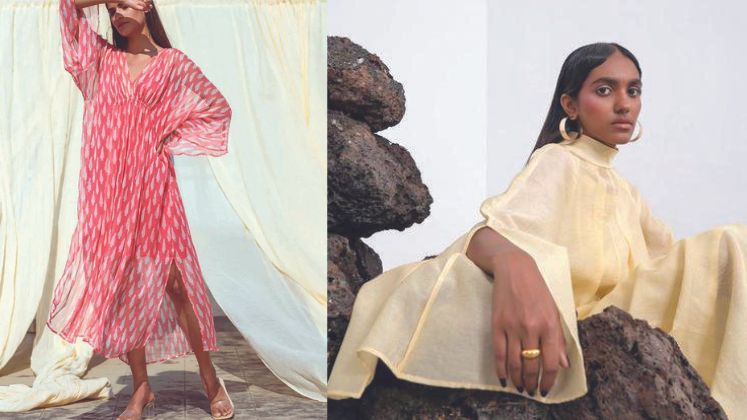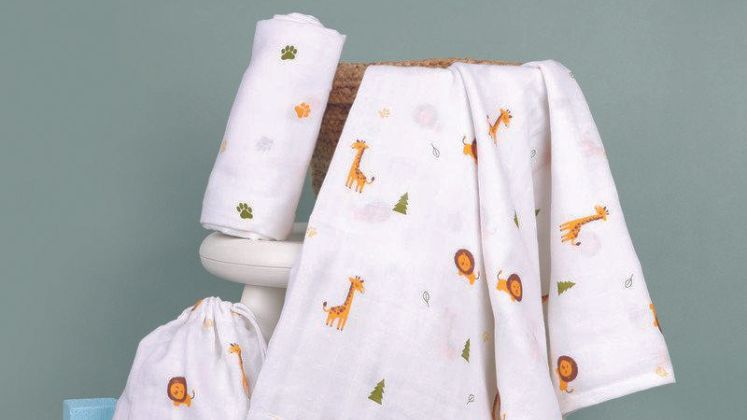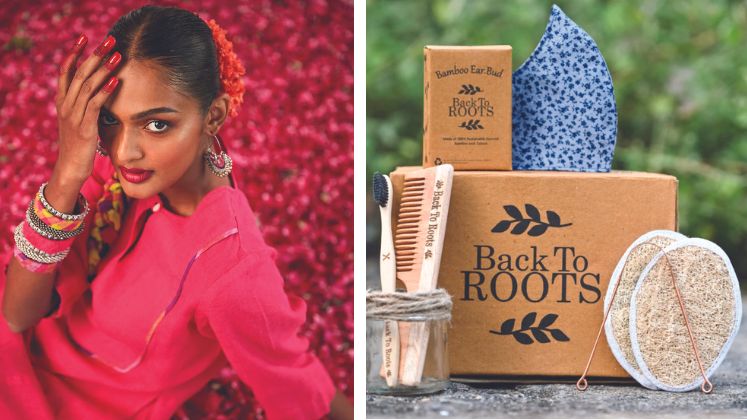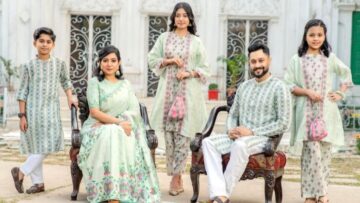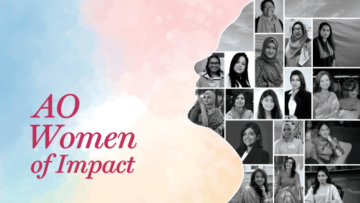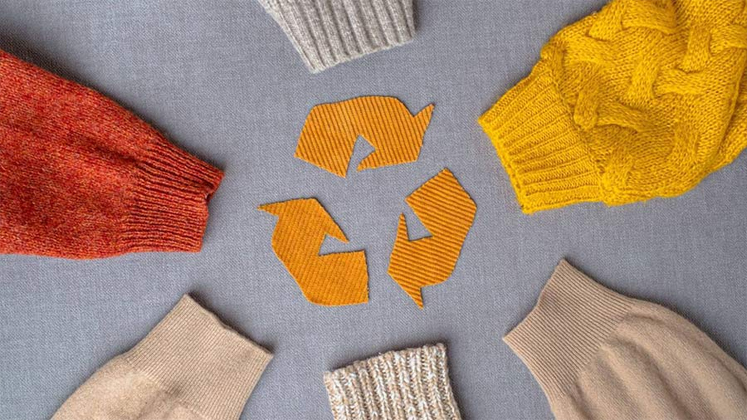
Consumers of today are embracing an eco-conscious fashion aesthetic in which organic textiles continue to capture a larger share of the market and are experiencing a surge in popularity in India at the moment.
With sustainable raw materials in their product line such as organic cotton, sustainable marketplaces are truly sustainable adhering to 100 per cent ethical sourcing, following sustainable practices in their daily activities (even in packaging and shipment), fair trade, zero waste, local sourcing, transparency and social responsibility.
The growth of the global sustainable fashion industry is projected to be US $ 9.81 billion in 2025 and US $ 15.17 billion by 2030 growing at a CAGR of 9.1 per cent, therefore hinting at the transition of the market dynamics.
The growth of sustainable marketplace in India
Sustainable marketplaces in India emerge as a response to growing environmental concerns and a desire for more ethical and sustainable consumer products. Previously, brands sold independently on Facebook or Instagram, but there has been a shift in how these brands operate now. The emergence of sustainable marketplaces enables brands to be listed on them, increasing their reach and also helping to promote sustainable living and consumption in India and create awareness about the importance of sustainability among Indian consumers.
There are many online sustainable fashion marketplaces offering multi-category products such as Sustainkart by Kanthi Dutt, Brownliving by Chaitsi Ahuja, Saahra by Saachi Bahl, Meolaa by Ishita Sawant and Shuffling Suitcases by Devyani Kapoor. Each of these platforms cater to 300-1000 brands.
According to the Bain report, sustainability is also a growing concern for Indian consumers; 20% of consumers in India are environmentally and socially conscious while 49% are health conscious. The trigger that has motivated the Indian consumer to move towards sustainable products has been the personal impact due to environmental issues, followed closely by family and friends who have influenced their choices.
These marketplaces not only meet the needs of consumers who are increasingly concerned about sustainability, but they also demonstrate that it is possible to build a profitable business while also focusing on social and environmental responsibility.
Celebrity co-founded private labels
Sustainable marketplace SustainKart brings onboard brands that are actually committed to supplying sustainable items from well-known businesses that are run by celebrities and influential people in its network. This Hyderabad-based brand founded by Kanthi and Shilpa Reddy is actually making progress towards its goal, having already raised US $ 1.5 million in funding and boasting 2.7L different SKUs and more than 2200 different brands. The platform provides sustainable offerings in categories like fashion and lifestyle.
SustainKart has also founded Kare & Karess with Kitchlu Aggarwal, a babycare line that offers toys, skincare, food and snacks, baby wipes, accessories and more. In 2022, it launched its first flagship store in Jubilee Hills, Hyderabad, making it the first mover in the sustainable marketplace.
Some brands listed on SustainKart are Planet over Profit, Biopads, Nia ethnic, KeeBee Organics, Superbottoms, Skosh, whitewaterkids etc.
Customers are exploring the shop by certification
Modern consumers are savvy about product certifications and increasingly prefer to make purchases based on these labels. What they wear and how it affects the planet both factor into their commitment to sustainability. The certifications listed on the websites are Ayush, Ecocert, FDA, FSC, GOTS, Oeko-Tex, PETA, USDA Organic.
Chaitsi Ahuja’s Brownliving is a multi-category, eco-friendly online marketplace for fashion and lifestyle. The business offers plastic-free shipping and Pragya Kapoor, an environmentalist and film producer, is affiliated with the organisation. Having received 75 lakhs from an angel investor and seeking further funding, the marketplace boasts of 420 different brands with a total of about 12,500 products and its quarterly growth is at about 44 per cent. Brownliving with its sustainable practices till now has been able to save 2,03,602 kg plastic from entering landfill since its inception in 2019.
Some brands listed on it are Nimbu Pani, One less, AAtman, Mhysa, ECO 365, Naari Pads, Malhar’s Children, Tarasha.
“Brown living is different from other sustainable marketplaces as we only list verified sustainable and 100 per cent plastic-free products, after doing a detailed check on sustainable metrics through the Brown Lens for each brand. Our intent is to ensure true and genuine sustainable consumption, so consumers don’t get any falsely-claimed products or get greenwashed,” – Chaitsi Ahuja
Luxury segment is also an integral part of sustainable marketplaces
Luxury segment which is considered a niche is one of the most hooked segments of sustainable marketplace. It offers unique symbolic value to a highly selective audience that is focused on quality and status over price. Harshita Chandra and Kartikey Chandra founded Upcycleluxe, a Delhi-based fashion-tech supported carbon-neutral marketplace for ethical and sustainable products. Upcycleluxe has around 200+ brands and caters approximately to 7000+ products and serves both B2C and B2B segments.
Upcycleluxe focuses on responsible consumption and includes homegrown designers from India to offer customers a mindful shopping experience of all products made consciously. Integrated science-based sustainable target solution on the platform allows the consumers to ask ‘what is their impact’ before they make a purchase. Upcycleluxe was selected by The Do school, Berlin on behalf of UN Women’s industry disruptor, WeEmpowerAsia Program with Catia Dawood and Katherine Kirschenmann.
Some brands listed on it are Taraasi, Orbaan, Earthy Route, Tamaksh ,Ewoke, The Rover Journal.
Another eco-friendly sustainable marketplace is Saahra founded in 2016 by Saachi Bahl. Currently it caters to the luxury segment and has three verticals under its umbrella. First is sustainable retail which has all the 32+ sustainable brands having 1000+ products. Second is its power annual design show named as ‘ConsciousEfforts’ which hosts conclaves, exhibitions and clean tech challenges and has prominent sponsors such as Redfm , lopera, GoDaddy , Affinity etc., supporting the good cause and thirdly, it provides corporate consultancy to sustainable material and processes. Recently it has teamed up with Mahindra & Mahindra in their quest to identify future-facing sustainable materials.
Some brands listed on Saahra are Sui, Banera, Leh Studio, Joskai Studio, Conscious Chemist, The House of Ara.
Promoting conscious consumerism
Many modern consumers are interested in what is called ‘conscious consumerism’ or the adoption of shopping habits motivated by a desire to have a positive effect on the world around them.
Next generation-sustainable start-up Meolaa kicks off this plan including dedicated experience-driven pop-ups, advanced technological augmentations within the platform and overall innovation for the commerce experience. Founded by Ishita Sawant, Meolaa is aiming to be known as one of the most inclusive shopping platforms in India.
The online marketplace, Meolaa has already onboarded 300+ brands housing 15000+ products across verticals such as athleisure, loungewear, relaxed fits and face yoga/massages among others and is committed to introduce more brands that address the conscious needs of new-age consumers across India. Compelled by growing technology, the brand aims to resonate with the values of the next generation. Launched in conjunction with the WeWork Labs and StrongHer Ventures Arise Mixer, the first experience-driven pop-up of Meolaa witnessed participation from numerous brands including Praanapoorna, Imars Fashion, Palison, ItiDor etc.
The recent pre-seed round led by StrongHer Ventures, Swiggy and Sixth Sense Ventures is a testament to Meolaa’s potential.
Brands listed on it are Doodlage, The Cotton Staple, Luna Blue Dress, Amoshi, Megasa, The Terra Tribe, Ora Organics, Palison.
Community-based sustainable marketplace
Devyani Kapoor, Owner of Shuffling Suitcase, is not only offering a platform for ethical homegrown brands to connect with their target audience but is also bringing artisans to the forefront of the production chain.
By prioritising sustainability and community building, Shuffling Suitcase hosts exhibitions that bring together like-minded individuals who share a common goal of protecting our planet. The platform’s efforts are not only limited to virtual events, but also extend to a pop-up store featuring sustainable products across multiple categories, including fashion.
This initiative is a testament to the power of collective action in driving sustainable change. With Shuffling Suitcase’s efforts, India’s fashion industry is taking a significant step towards becoming more ethical, transparent and environmentally conscious.
Brands listed on it are Yam, Aarjvee, Jazba, Mati, B Label, Shiori, Vilayaa, Kaatn Trail.
Challenges hinder the pace of growth but there is still scope
India has made strides towards creating a sustainable marketplace, but the country still faces significant challenges. One of the biggest obstacles is the lack of knowledge and awareness among consumers and businesses about sustainable practices. This means that many products that are not sustainable are still being bought and sold, perpetuating the unsustainable status quo. Additionally, the price of sustainable products and the infrastructure to support sustainable practices can be barriers to adoption. Another challenge is the complex supply chain ecosystem in India, which makes it difficult to ensure that supply chains are ethical and sustainable. Finally, funding for sustainable businesses can be scarce due to slow growth and a lack of interest from investors.
“To address these challenges, there is a pressing need for more awareness and collaborations in the ecosystem,” has been the unanimous verdict of all marketplaces.

